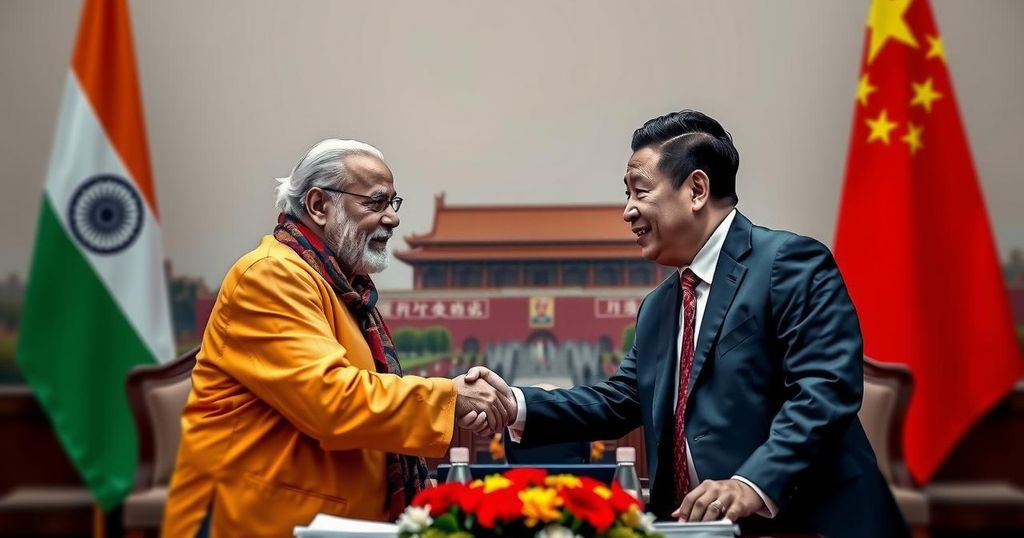India and China Seek Enhanced Bilateral Cooperation After Recent Meetings
India and China have commenced discussions to resume direct flights and the Kailash Mansarovar pilgrimage amidst improved diplomatic relations. Following a high-level meeting during the G20 Summit, the ministers affirmed the completion of disengagement in eastern Ladakh and emphasized the importance of managing differences and establishing a new starting point for bilateral ties.
In a significant advancement in diplomatic relations, India and China have initiated discussions regarding the resumption of direct flights between the two nations as well as the Kailash Mansarovar pilgrimage. This development follows a meeting between Indian External Affairs Minister S. Jaishankar and Chinese Foreign Minister Wang Yi in Rio de Janeiro, during the G20 Summit. The ministers highlighted that the completion of the disengagement process in eastern Ladakh has fostered peace and tranquility, marking this meeting as the first high-level engagement since that resolution. Furthermore, the discussions encompassed the resumption of flights and the pilgrimage, along with information sharing regarding trans-border rivers and media exchanges. Prime Minister Narendra Modi’s recent meeting with President Xi Jinping reinforced the notion that both countries have areas of “differences and convergences.” Minister Jaishankar underscored India’s commitment to a multipolar world, emphasizing a principled foreign policy that is independent and does not seek dominance through unilateral actions. During the talks, Foreign Minister Wang Yi acknowledged the significance of India-China relations for global stability, indicating a mutual focus on managing differences and exploring next steps towards rapprochement. The Chinese Foreign Ministry remarked that the relationship between India and China stands at a “new starting point,” underlining the importance of cementing mutual trust through dialogue. The ministry called for both sides to respect core interests and resolve differences with sincerity, thereby restoring bilateral relations to a stable and healthy trajectory. Overall, these discussions signify a renewed effort to mend and progress diplomatic ties between India and China, with bilateral cooperation suggested as beneficial for both nations and beyond.
The relationship between India and China, marked by historical tensions and recent military confrontations, particularly in eastern Ladakh, has been a focal point of geopolitical discourse. Since the clash in Galwan Valley in June 2020, which resulted in casualties on both sides, diplomatic engagements have been limited. The resumption of direct flights and the pilgrimage to Kailash Mansarovar signifies an attempt to rebuild trust and cooperation between the two countries. Previous meetings among top leaders indicate a shared recognition of the importance of stable relations, especially in the context of rising global geopolitical challenges.
In conclusion, the recent interactions between India and China signal a pivotal moment in their bilateral relations, emphasizing dialogue and cooperation to manage existing divergences. The acknowledgment by both ministries of the relationship reaching a new starting point reflects a mutual recognition of the broader implications of their ties for regional and global stability. Continued diplomatic efforts and constructive engagements will be essential to fully restore and enhance their partnership moving forward.
Original Source: www.ndtv.com




Post Comment